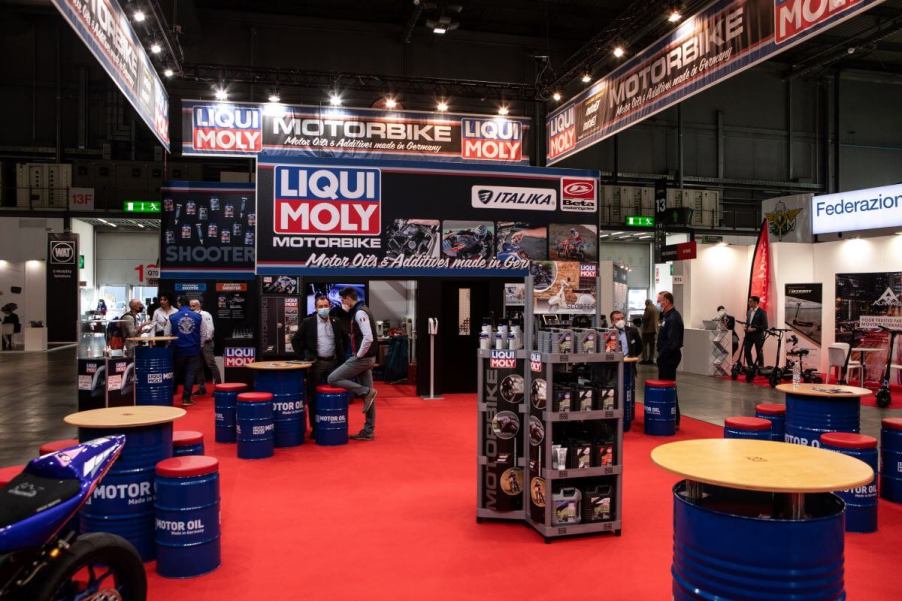
2 Alternatives to Octane Boosters for Improved Vehicle Performance
Most vehicle manufacturers invest in advanced technologies to deliver high-performance models. However, to a performance-focused car buyer, a vehicle straight out of the factory may not meet the performance threshold to their liking. That’s why most feel tacitly mandated to customize their whips by installing aftermarket accessories and fuel additives.
If you’re a customization enthusiast, the chances are that you’ve come across an octane booster during your search for vehicle improvement products. The liquid additive is added to a car’s fuel chamber to increase the vehicle’s octane rating to enhance driving performance while reducing engine maintenance costs. However, if you plan to boost your car’s performance, there are other alternatives to octane boosters to consider.
What is an octane booster?
As noted on JB Tools, an octane booster is a liquid additive that can be added to a car’s gas tank to improve the fuel’s octane level. As a result, the vehicle’s driving performance goes a notch higher. Overall, an octane booster acts as a fuel stabilizer, lowering fuel pressure and enabling the fuel to withstand more detonations in an engine’s combustion chamber than low-octane fuel. By stopping the knock, the octane level in the gasoline increases automatically.
You can use a high-powered octane booster in petrol to rev up a vehicle’s performance. The product typically comes in an easy-to-use design, usually in canisters, which makes its application similar to how you’d pour your motor oil. You can add the booster to the tank before fuel or premix it in the fuel can. Even so, ensure you read the instructions and precautions on the canister label before use.
Manufacturers provide cheap octane boosters with attractive packaging and marketing claims. However, if you want high-octane fuel, be ready to pay more. Due to their nature, octane boosters are designed for high-compression engines and are highly recommended for professional drivers and technicians in motorsports teams and performance car owners. Race cars need to generate power that’s not required in day-to-day driving, and that’s why they require performance-enhancing high-octane fuels.
2 alternatives to octane boosters

Octane boosters are not the only products on the market that vehicle owners can use to enhance their cars’ driving performance. Other alternatives, such as premium fuel and fuel stabilizers, can be used instead of boosters. However, there are some gritty details you must first understand before using these alternatives.
As explained on The Gremlin, if your sports car doesn’t require premium (high-octane) fuel, adding an octane booster won’t improve the vehicle’s performance. It’s recommended to use the type of fuel specified in your owner’s manual because using high-octane gas won’t improve the car’s engine performance, speed, or mileage.
If your car requires premium fuel, use only premium gas. Therefore, a car designed for premium fuel will only generate the needed power and speed if you use premium. This fuel type already has a high octane rating of 91 to 94, eliminating the need for an octane booster. Usually, high-performance vehicles and heavier cars like SUVs require premium gas to prevent knocking since they have higher compression ratios than regular combustion engines that can knock without premium fuel.
Fast Exocet also highlights that you can use a fuel stabilizer if you don’t drive your car regularly. A stabilizer prevents your fuel from getting old and stale, properties that can make your engine perform sluggishly. No fuel lasts forever; over time, corrosion will cause the buildup of debris and contaminants. A fuel stabilizer can help keep your vehicle’s gas clean, ensuring extended engine function with low maintenance costs.
Most people mistake fuel stabilizers for octane boosters, but the two are different products. According to Gold Eagle, a fuel stabilizer is designed to extend a car’s fuel lifespan – usually more than 30 days. In contrast, the latter is designed mainly to raise a vehicle’s octane rating for improved driving performance. We should also mention that you can add boosters before fuel or premix it into fuel. It’s different with fuel stabilizers because they are only applied before leaving the fuel unused for an extended period.
Benefits of octane boosters
Octane boosters can benefit your vehicle in various ways. Applying the product to your vehicle’s tank increases the vehicle’s octane rating, which raises the vehicle’s driving performance. Additionally, octane boosters act as cleaners, ensuring your engine’s combustion chamber, engine quench, and the connected fuel lines are free from debris and contaminants, thus extending the fuel’s longevity.
Apart from that, boosters prevent detonation and engine knock, automatically increasing octane levels to enhance the engine response and performance. It’s also worth noting that octane boosters are easy-to-use products. You need not have too much experience or technical skills to use octane boosters, but applying the product according to the manufacturer’s instructions is crucial.



